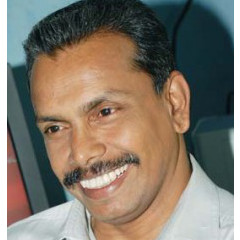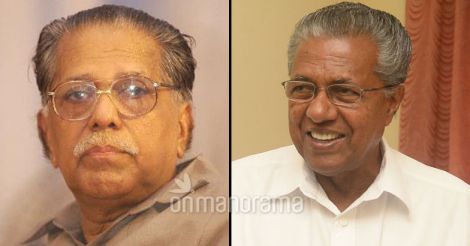We have been discussing threadbare and questioning the political and ethical propriety of the appearance of the chief minister's special legal adviser as counsel for defendants in different cases in which the state government is a party.
I would like to shed some light on another aspect of the issue - the constitutional responsibility of the government. It is the job of the advocate general to give advice to the government and the chief minister in legal matters referred to him. Creation of an additional post of principal legal adviser is nothing but mere extravagance.
The presence of two ‘legal power centers’ within the government would definitely result in unnecessary delays in administration and undermine the quality of governance. The government will find itself in a catch-22 situation if the legal advice offered by the two on a particular case flatly contradict each other.
Taking all this into account, we all have the right to question such a redundant appointment.
As far as the fulfilment of one’s constitutional responsibility is concerned, the legal adviser’s role is as important as that of the chief minister. The final say on whether to lift the ban on online lotteries rests with the government and it should be evolved through a policy process. Therein lies the problem. The stance taken by the honorary legal adviser could be perceived as the government’s position on the issue.
When the chief minister’s legal adviser appears as counsel for controversial lottery baron Santiago Martin, it sends out a message to the general public that the chief minister is acting against protecting the state’s interests. It all boils down to one point. All the government officials up to the rank of the director general of police are committed to discharge their respective responsibilities as per the interests of the chief minister’s legal adviser. So, in a larger sense, Santiago Martin stands to receive undue favors from the State police and the bureaucracy.
In short, when the chief minister’s legal adviser appears on behalf of defendants in cases pursued by the state, the entire official machinery would be forced to act against the government’s interests. Such a potential conflict of interest will push the state into a serious administrative crisis.
The CPM is on the horns of a dilemma at present. The party was forced to deviate from its policies when it consented the principal adviser to offer legal advice in the ice-cream parlor case and the enforcement directorate's decision to attach Santiago Martin’s assets.
The state may win or lose litigations, but what ultimately matters is the stance taken by the government. Unfortunately, the legal adviser took a stand that supported the perpetrators in both the sex scandal and the financial fraud cases.
Furthermore, the LDF government chose to not support V. S. Achuthanandan when he approached the Supreme Court seeking CBI probe into the ice-cream parlor case. It is the party that bore the cost of litigation on behalf of Achuthanandan. However, the arguments made by the lawyer who represented the government was against the party! Justifying the government’s move, Pinarayi Vijayan’s consultants and advisers said that the government was a continuing system and a party could not force a change of policy when it takes charge.
Achuthanandan has always maintained that M.K. Damodaran, who was the then advocate general, played a key role in sabotaging the ice-cream parlor case. According to him, Damodaran overlooked the legal advice given by Kallara Sukumaran, who was the director general of prosecutions during the tenure of the E.K. Nayanar ministry, to shield the real culprits in the the infamous sex scandal.
The online lottery case also exposed the CPM’s dual standards. When Santiago Martin challenged the directorate of enforcement’s order to attach his properties under the Prevention of Money Laundering (PML) Act, the special legal adviser appeared for the petitioner, whom the party once termed a ‘fraudster’. The party had been alleging that Martin had siphoned off around Rs80,000 crore from the state.
How can the party allow the chief minister’s legal adviser to defend such a ‘fraudster’ in the court and justify it?
The loyalists of Damodaran argue that there was nothing wrong in it since the state government was not a party in that particular case. Strangely, they could not find anything odd in chief minister’s legal adviser pleading in the court against the state!
Of course, a lawyer has the right to take up any case of his choice. However, a democratically elected government needs a non-partisan legal adviser who can stand firm to safeguard its interests and policies.
(The author is a political observer and writer)

























 MK Damodaran, Pinarayi Vijayan
MK Damodaran, Pinarayi Vijayan